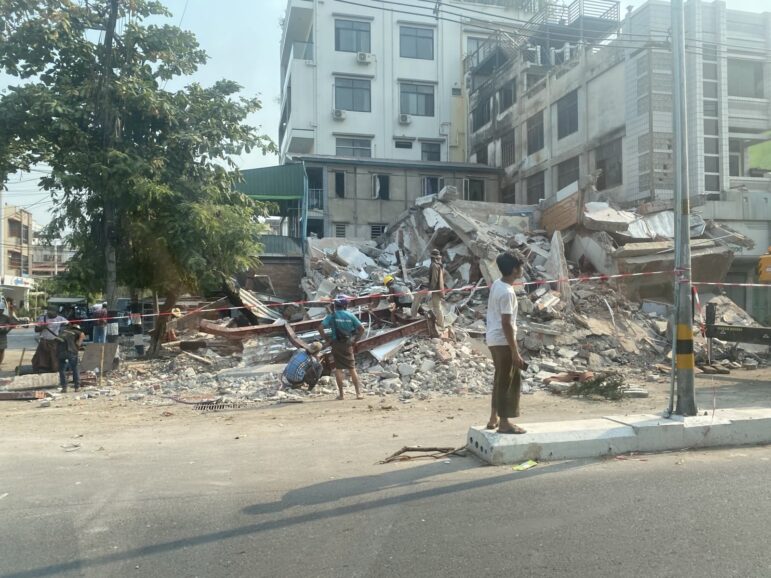How Local Networks Are Strengthening Humanitarian Responses in Myanmar
While no longer in the headlines, earthquake recovery continues in Myanmar. In some communities, local people are struggling with the harmful impact of both the earthquake and armed conflict. As one of our local team members, Iris, shared “people could not distinguish anymore if the ground was shaking from aftershock or from an air strike.”
NP’s team has been able to rapidly respond because of the relationships in community. Working in Myanmar since 2012, we have trusted partnerships with local women-led civil society groups, volunteer early warning early response (EWER) networks, and faith leaders. Checkpoints can make it impossible to access certain communities but EWER teams are able to give us timely information about the checkpoints, while church leaders move with us to increase our chances of getting through. In some instances, we’ve accessed hard to reach communities by traveling in ambulances transporting deceased people or traveling with trusted health workers delivering critical supplies.
Close ties to local churches and volunteers allows our team to rapidly respond to the safety needs of communities in real-time. In one community alone, we trained forty volunteers in psychological first aid. Now, community members have tools to support each other in decreasing their stress level and practicing mental health care. These tools help people stay calm and make clear decisions during situations that are otherwise traumatic and dangerous. Training in psychological first aid, alongside unarmed civilian protection techniques, means people have more capacity to keep themselves and their family safe.
The key to closely working with local groups like churches and volunteers is to let them lead. We call this “primacy of local actors.” The people in community know best what their safety needs are and what capacities the communities have now to keep themselves safe. All of the volunteers NP works with are survivors of violence and the earthquake – they know their situation best. The NP team even follows the local people’s lead in details such as how visible we are (do we have a logo on our car or on our shirts), and how we gather (how many people can be together and in which spaces), knowing that the community know better than NP staff what risks exist too – what could leave us all susceptible to violence.
As one of our team members, Min, shared with us, “This [relationship and trust building] does not happen like magic. It is a long, long process.” Since NP has had this process in place for so many years, communities have been able to receive dire support just days after the earthquake shook the country.

